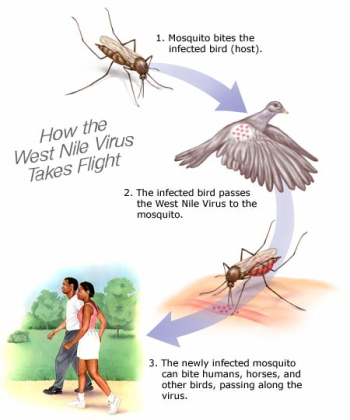BURLINGTON, ON June 26, 20112 West Nile virus positive mosquitoes have been found in Halton Region
Batches of mosquitoes collected last week in Oakville and Milton tested positive for West Nile virus (WNV). These are the first batches of positive mosquitoes found in Halton Region this year.
“Positive mosquitoes are a key indicator of the risk of human West Nile virus infection. This is the earliest we’ve found West Nile virus in Halton, which is likely due to the mild winter and very warm spring.
“Typically we don’t see positives until late July or August,” said Dr. Bob Nosal, Halton Region Medical Officer of Health. “The reality this year may well be that the whole summer, not just late summer, will pose risk for human illness from West Nile virus.
“Our main message is that no matter where you live in Halton, protect yourself from mosquito bites, especially if you are an older adult or have underlying illness.”
Mosquitoes can transmit WNV to humans after becoming infected by feeding on the blood of birds carrying the virus. About 80% of people who become infected with WNV do not experience any illness, while about 20% will develop West Nile fever.
Less than 1% will develop inflammation of the brain or its lining, or a type of paralysis. Older adults and people with underlying illnesses should be particularly cautious as they are more likely to develop the illness. The following are steps that residents can take to protect themselves and their families from mosquitoes:
• Cover up. Wear light-coloured, long-sleeved shirts and pants with tightly-woven fabric.
• Avoid being outdoors from early evening to morning when mosquitoes are most active and likely to bite, as well as at any time in shady, wooded areas.
• Reduce mosquito breeding sites around your home by getting rid of all water-filled containers and objects. Change the water in bird baths at least once per week.
• Use an approved insect repellent, such as one containing DEET.
A map showing the locations of standing water sites that have had larvicide applied is available on the Health Department’s website.
To report standing water or for more information about West Nile virus, please dial 311 or call Halton Region at 905-825-6000, toll free 1-866-4HALTON (1-866-442-5866), TTY 905-827-9833 or e-mail wnv@halton.ca.



















